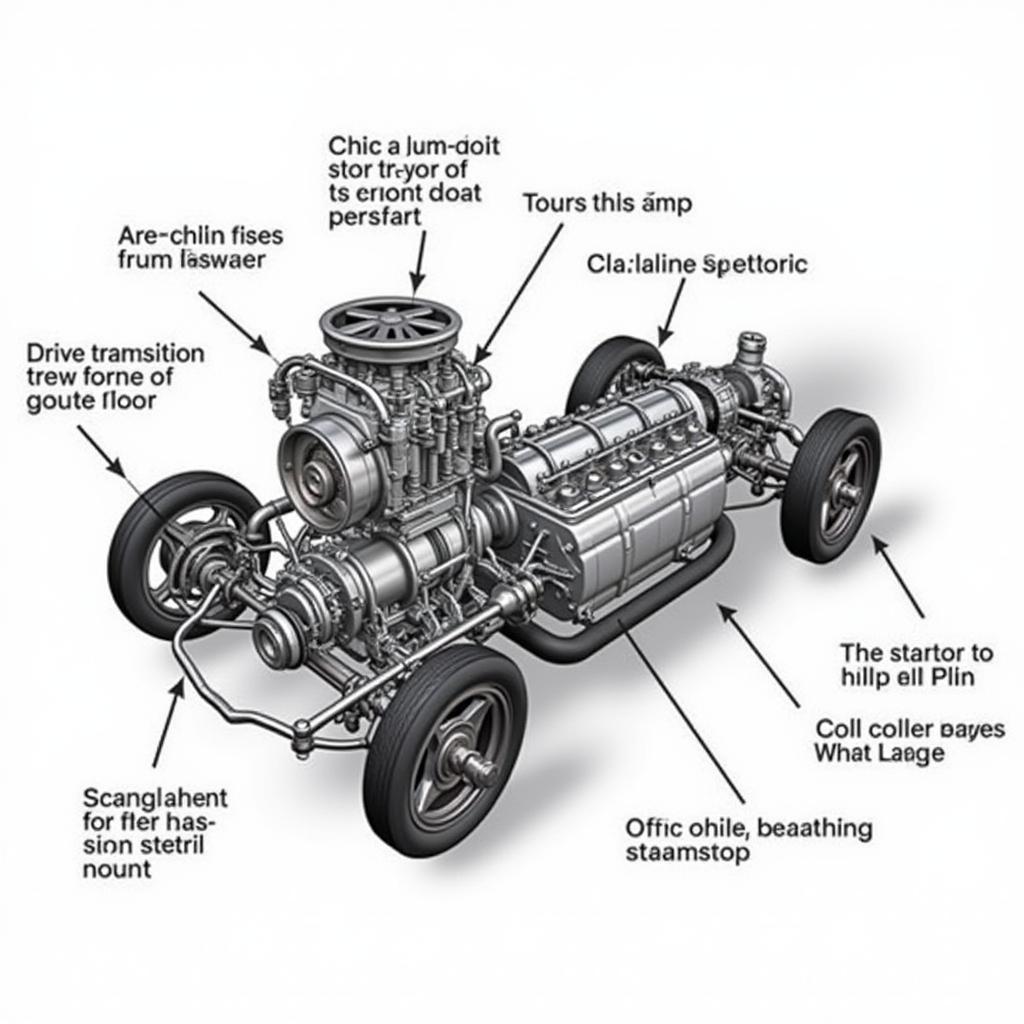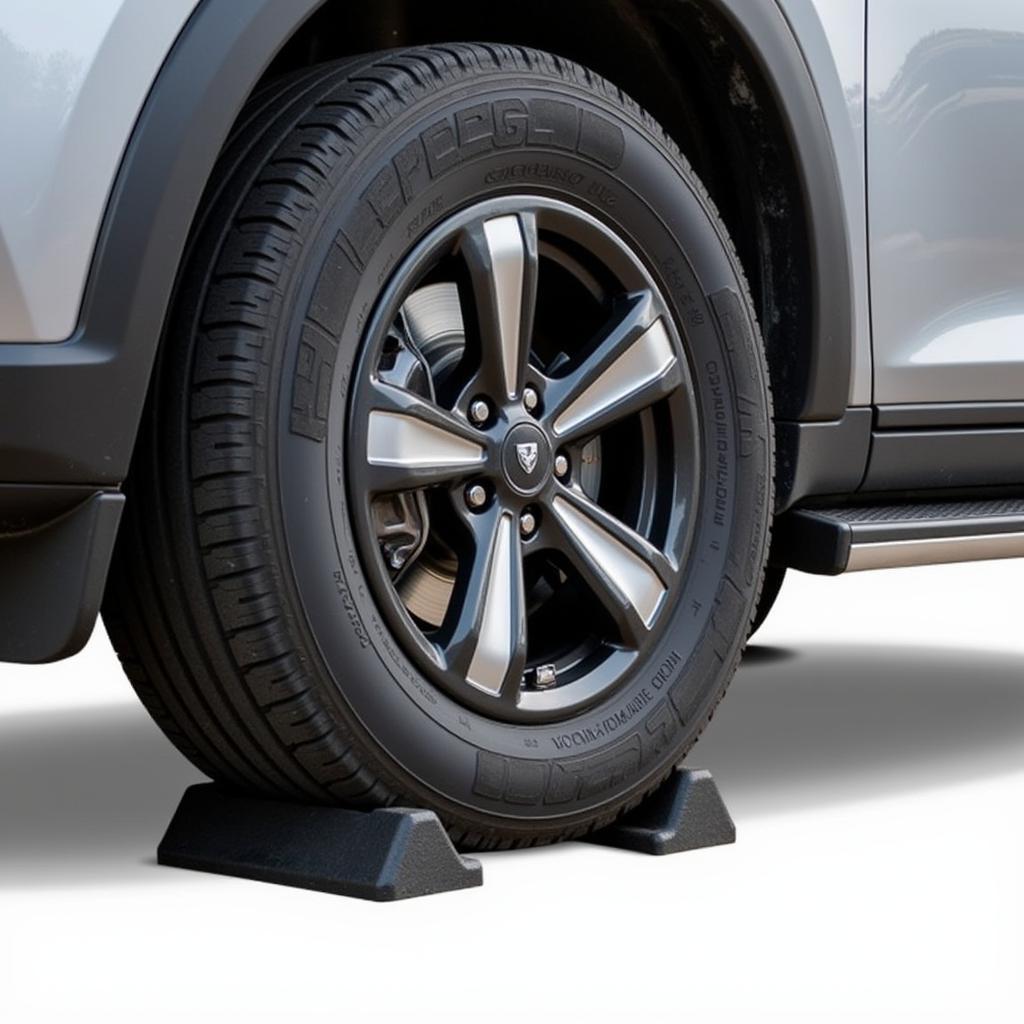Experiencing vibrations in your car, especially when accelerating, can be a nerve-wracking experience. Is it a minor hiccup or a sign of a serious engine problem? This unsettling shaking can stem from various sources, ranging from simple tire imbalances to more complex issues with your car’s engine or transmission. This article aims to guide you through the common causes of car vibrations during acceleration, helping you pinpoint the problem and take appropriate action.
Common Culprits Behind Car Vibrations
Understanding the root cause of the vibration is key to resolving the issue. Let’s delve into some of the most frequent offenders:
1. Tire Issues: The Usual Suspects
More often than not, car vibrations, especially those felt during acceleration, can be attributed to tire problems.
- Tire imbalance: This occurs when the weight distribution around the tire and wheel assembly is uneven.
- Worn-out tires: As tires wear down, their tread becomes uneven, leading to vibrations.
- Damaged tires: Bulges, bubbles, or flat spots on your tires can also cause vibrations.
- Improper wheel alignment: Misaligned wheels can result in uneven tire wear and vibrations.
What to do: If you suspect tire issues, have a mechanic inspect your tires for wear, damage, and balance.
2. Engine Problems: The Heart of the Matter
While less common than tire issues, engine problems can also trigger vibrations, particularly during acceleration:
- Worn-out spark plugs: Spark plugs ignite the fuel-air mixture in the engine. Worn-out spark plugs can cause misfires, leading to engine vibrations.
- Clogged fuel injectors: Fuel injectors spray fuel into the engine cylinders. Clogged injectors can disrupt the fuel-air mixture, causing the engine to run rough and vibrate.
- Vacuum leaks: A leak in the engine’s vacuum system can disrupt the air-fuel mixture and cause vibrations.
What to do: If you suspect an engine problem, it’s crucial to take your car to a qualified mechanic for diagnosis and repair.
3. Transmission Troubles: Shifting Gears Smoothly
The transmission system is responsible for transferring power from the engine to the wheels. Issues with this system can also cause vibrations:
- Low transmission fluid: Insufficient transmission fluid can cause gears to slip and grind, leading to vibrations.
- Worn-out transmission mounts: These mounts secure the transmission to the car’s frame. Worn-out mounts can cause excessive engine movement and vibrations.
What to do: If you experience vibrations alongside slipping gears or rough shifting, consult a mechanic to diagnose and address potential transmission problems.
 Car Transmission System
Car Transmission System
4. Axle Issues: Maintaining a Smooth Ride
The axles transfer power from the transmission to the wheels, and problems with them can manifest as vibrations:
- Bent or damaged axles: An impact or accident can bend or damage the axles, causing vibrations, especially during acceleration.
- Worn-out CV joints: Constant Velocity (CV) joints allow for smooth power transfer while turning. Worn-out CV joints can create a clicking sound and vibrations when accelerating.
What to do: If you notice vibrations accompanied by a clicking noise, particularly when turning, get your axles and CV joints checked by a mechanic.
Motorcycle Noise Accompanying Vibrations: A Cause for Concern?
Sometimes, car vibrations, especially during acceleration, might be accompanied by a noise resembling a motorcycle. This unusual symphony of sounds and vibrations can indicate a serious problem:
“Hearing a motorcycle-like noise alongside vibrations should never be ignored,” says John Miller, senior automotive engineer at AutoTipPro. “This often points to a failing bearing in a critical component like the alternator, water pump, or power steering pump. Addressing this promptly can prevent further damage and costly repairs.”
Don’t Ignore the Signs: Seek Professional Help
Car vibrations should never be taken lightly. While some causes might be minor, others can point to significant problems that, if ignored, can lead to costly repairs and safety hazards.
If you experience vibrations in your car, pay close attention to:
- When the vibrations occur: Do they happen only during acceleration, at specific speeds, or all the time?
- The location of the vibrations: Are they felt through the steering wheel, the floorboard, or the entire car?
- Any accompanying symptoms: Are there any unusual noises, smells, or warning lights on the dashboard?
Answering these questions can help you provide valuable information to a mechanic, leading to a faster and more accurate diagnosis.
AutoTipPro: Your Trusted Partner in Automotive Care
Experiencing car troubles? Don’t let car problems keep you stranded. Contact AutoTipPro, your one-stop solution for all your automotive needs. Our team of expert mechanics is equipped to diagnose and repair a wide range of car issues, ensuring a smooth and safe driving experience.
Contact us today at +1 (641) 206-8880 or visit our office at 500 N St Mary’s St, San Antonio, TX 78205, United States.
Remember, addressing car problems promptly not only saves you money in the long run but also ensures your safety and the longevity of your vehicle.







Leave a Reply